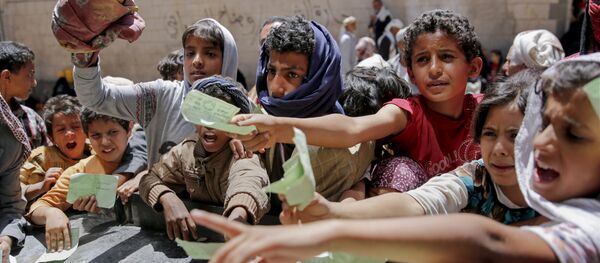"I have proposed an agreement to avoid military clashes in Hodeida," Cheikh Ahmed said. "My proposal, which includes security, economic and humanitarian elements, would allow for the continued flow of commercial and humanitarian supplies."
The special envoy added his proposal will also ensure that no funds are diverted from customs revenues and taxes, so the money can then be used to pay salaries and support services rather than used for military purposes.
Cheikh Ahmed warned that the spread of fighting in the city would lead to tremendous losses of civilian life and infrastructure that is needed to offload commercial and humanitarian supplies.
He also noted with regret the overall lack of progress in settling the conflict, blaming continued fighting on the "reluctance of the key parties to embrace the concessions needed for peace."
Moreover, Cheikh Ahmed called on the parties to urgently start a dialogue to prevent further aggravation of the situation.
Yemen's civil war between the internationally recognized government of President Abd Rabbuh Mansur Hadi and Houthi rebels erupted in March 2015. Shortly after the outbreak of the conflict, a Saudi-led coalition of mostly Persian Gulf countries launched airstrikes against the Houthis at Hadi's request.
In March, according to media reports, the White House officials said that Washington and the Saudi-led coalition are considering an attack on Hodeida to oust the Houthi rebels.
Never miss a story again — sign up to our Telegram channel and we'll keep you up to speed!



